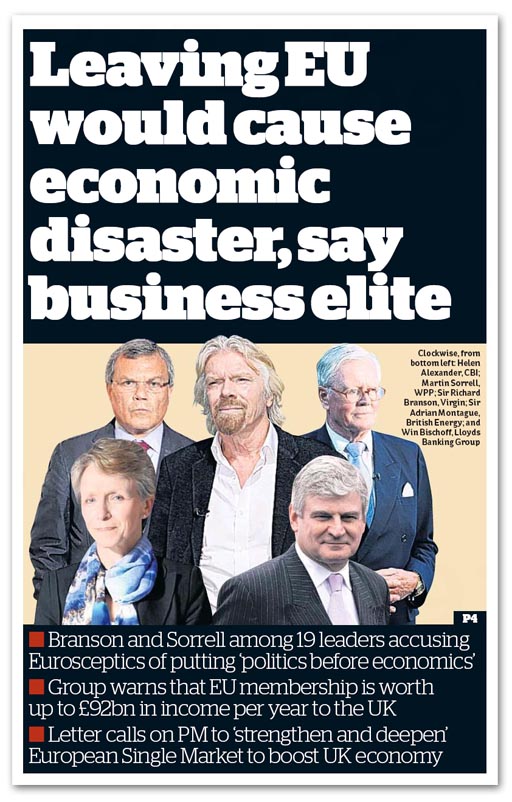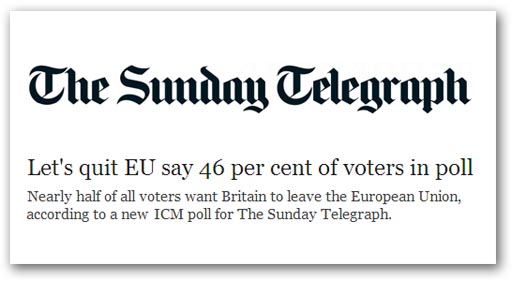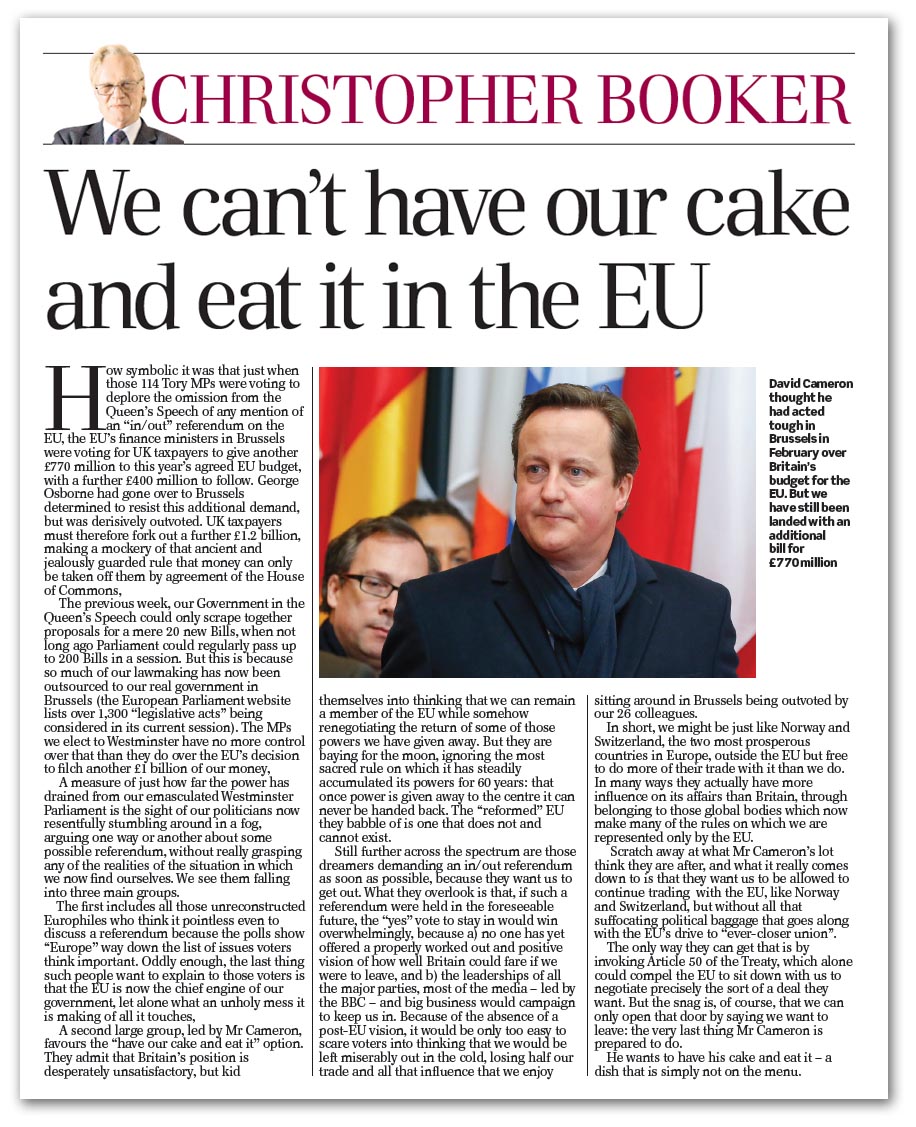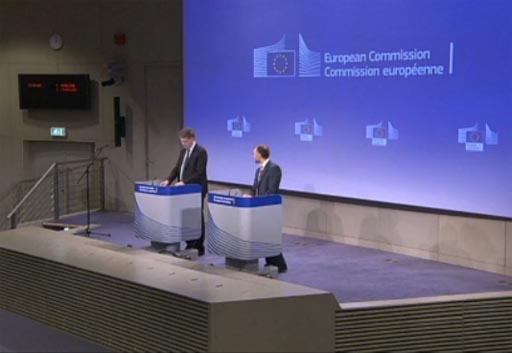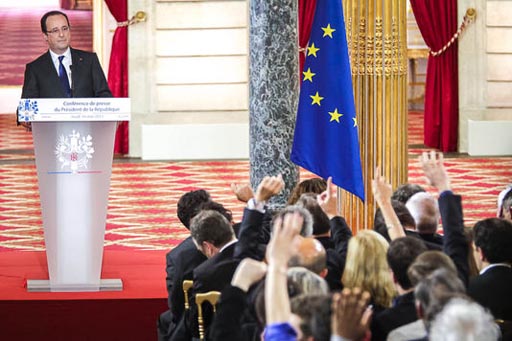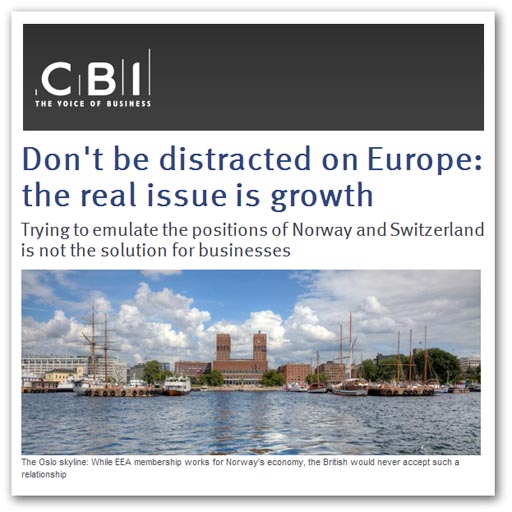DWN has been running a story about a power struggle that has broken out in the AFD, which has the potential to cause serious damage to the emergent party. And quick to intervene has beenHandelsblatt, with comment and readers' letters, while there is some further analysis on our own forum. Without dwelling specifically on the fate of the AFD, one can observe that this dynamic seems to be a characteristic of political groupings – witness the constant talk of "Tory splits". But this dynamic seems at its most virulent in the eurosceptic movement, which, as we have already remarked, increasingly resembles the Monty Python anti-Roman factions. Of the various groupuscules inhabiting the eurosceptic terrain, at this time there are perhaps as many factions as there are Pashtun tribes, each with their own fanatical adherents which make the People's Front of Judea look moderate. Factions are, in part, defined by their beliefs, and some of the more vitriolic adhere to the "trappist" doctrine – the belief that invoking Article 50 is a "trap" and that withdrawal from the EU should be occasioned only by the repeal of the European Communities Act and the unilateral abrogation of the treaties. These factions have recently been fortified by the support of convicted criminal and former MEP, Ashley Mote. He asserts that an unnamed "bureaucrat", of unspecified rank, location and employer, was "honest enough" to tell him personally that Article 50 is "about being told, after two years of discussions exclusively amongst the other members, what our terms of leaving would be". According to this anonymous official, as conveyed exclusively and uniquely by Ashley Mote, "we would then have to accept the EU's terms or withdraw the application to leave" – even though, in the absence of an agreement, the self-same Article 50 specifies that the Treaties shall cease to apply to the State in question … two years after the notification of withdrawal. Such an egregious misreading of the Article, however, does not detract from the religious fervour of the believers, who are given even more sustenance by the holiest of all cult leaders, Rodney Atkinson. He has recently handed down The Word from on high. Should, as a result of a referendum, the decision be to leave the European Union then the 1972 European [Communities] Act will be repealed, he has pronounced. Then, "the United Kingdom will leave the European Union and begin negotiations AS A SOVEREIGN UNENCUMBERED STATE to establish free trading and co-operation agreements with the EU together with other EEA States not part of the European Union". Thus, we are informed, the UK will not act under Article 50 of the Lisbon Treaty since the country will no longer be part of that constitutional Law. Quite what we are supposed to do by way of trade, in between the period of leaving and concluding negotiations to establish free trading and co-operation agreements, we are not told. But given that such negotiations – should the EU member states agree to them – could take some years, it is of more than academic interest. Nevertheless, what these tiny groupuscules think is generally of very little importance but for the tendency of the opposition to pluck them from their deserved obscurity and project their views as representing the eurosceptic community as a whole. The BBC is particularly adept at this technique, and nothing would serve the europhile cause better than to suggest that the alternative to staying in the EU is immediate, unilateral withdrawal, with all the uncertainty that that entails. The prospect of the chaos that would ensue is probably the best advert for staying in the EU that could be devised. Another reason why the "trappist" cult is dangerous is that it plays into the hands of the pretend eurosceptics, the so-called "europlastics" such as Rodney Leach. They belong to the rival "reformist" cult. The majority of the public, the political class and business, cultist Leach recently asserted, "are sceptical about the EU but rather than leaving it they want a new deal to reduce its power over their lives". And, high up in the list of reasons he uses to justify this assertion is the claim that none of the "outers" (recent or otherwise) has set out a credible alternative. Leach is very selective in order to make this claim, as there have been credible alternatives set out. These, he ignores, enabling him to cite the "trappists" in order to make his point. In his rivals, he has a ready-made alternative to condemn, one that completely lacks credibility. However, while Leach is quick to brand his rival cultists as lacking in credibility, his own plans miraculously escape a similar appellation. Yet, in the Leachate "new order", the EU is redefined as the Single Market, "not as a vague aspiration to political union, still less as a currency union".
Safeguards, he then says, would be put in place to ensure that the eurozone did not write the rules for the rest of the member states, following which, "the next step would be to strengthen the powers of Westminster over EU decisions".
Here on this blog, we have been known to accuse the "trappists" of fantasy politics, going for what we have called the "magic wand" option. But Leach is in a league of his own. In a twinkling of an eye, he wants to reform away over sixty years of political integration, turning the EU into a cuddly free market. Then, for his next trick, he wants to weaken the primacy of EU law.
Supposedly, though, the "trappist" and "reformist" cults are both eurosceptics, sharing the same faith. In theory, therefore - like the AFD - they should be united behind their common banner. But the reality is that, when there is such a yawning chasm between the different ideas, unity will always be a façade.
At the beginning, we saw in the AFD the elements of disharmony when they could not agree whether the euro should be abolished, or whether eurozone should just contract, to include only the northern European states.
With that much difference, there was never going to be harmony. And when British eurosceptic cults range from trappists to reformists, it is hard to concede that they even belong to the same religion. Their differences are not so much "splits" as the Grand Canyon on steroids.
Such cults, sharing only the tendency to indulge in fantasy politics, are never going to be united. But "split" is far too mild a word. They don't even inhabit the same universe.




